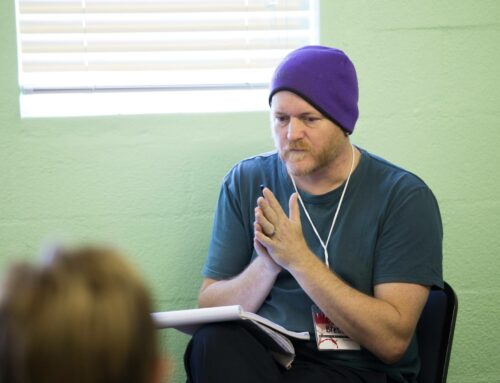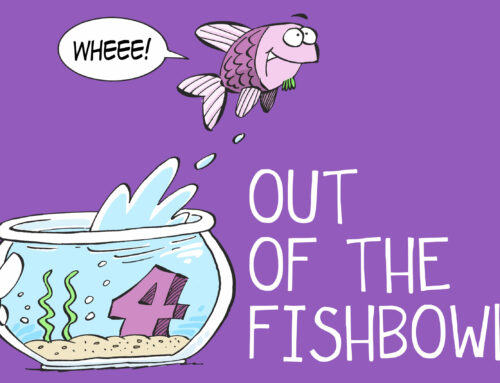Are we responsible for the sins and legacy of the past?
This seems to be a stumbling point for younger people today, who didn’t live through apartheid and so “Why should we be held responsible for it?”
i saw this illustration on Facebook today and think it helps address legacy so very well:

How do we make sense of the past as it relates to our present
A lot of the race conversations tend to be deflected or avoided by a miscommunication or misunderstanding of the topic at hand.
So when we try to talk privilege, white people will often try to counter with, “But I grew up poor” or “I worked hard for what I have” as if the concept of privilege is about how much stuff you have or hard you worked. That can play into it, but it is more usually about access, opportunity or networking. Put a black person and a white person in exactly the same set of marginalised circumstances and who will be more likely to have an easier way out of it?
When we try to talk racism, white people will often counter with an example of a black person being biased or prejudiced and the line, “Black people can be racist too?” and of course, “What about reverse racism?” While it is possible for anyone to be prejudiced, what a lot of people are talking about when they use the term racism is specifically linked to the power and authority to direct systems and structures so that they work against people of a different race.
I could go on, but the point is that so many people don’t even make it to the beginning of many of these conversations because a word or phrase or idea will trigger some kind of negative, often defensive reaction in them.

Three words to guide us
When i think of my own journey and when i have conversation with other people about theirs, i have found three ideas that i feel like most people should be able to use as a means of moving forward in their journey.
[1] RECOGNISE
When it comes to racism or prejudice or any kind of bias against another human being based on something they had no choice over, the starting step is to see it. Until i recognise that there is something inside me that makes me think i am better than someone else, i am not going to easily be able to move forwards.
Until i recognise something, i can’t so anything to change it.
“I see something in me that needs to change.”
[2] ACKNOWLEDGE
There is something so powerful in speaking the words out. Acknowledging is the step of admitting that there is something in me that needs change. Seeing the problem and owning it. Not being identified as the problem [i’m not saying i am a racist but i am saying there is racism in me that needs to be eliminated or transformed] but identifying the problem exists.
“There is something in me that needs to change.”
[3] LEVERAGE or TRANSFORM
When it comes to privilege, once i have noticed and owned that there are certain benefits that i get simply from being a white person [more access, less suspicion, greater respect, more assumption of innocence as a few] i can’t necessarily get rid of my white privilege, but i can often leverage it/use it to help extend the benefits i get to others around me who do not.
When it comes to racism, once i have recognised and acknowledged a behaviour, thought pattern, word usage or action in me that is racist [or in some way hurts those who are different to me] then i can start working on changing whatever the thing is which sometimes means learning a new action, behaviour or word, or else unlearning something i thought to be true. i can start doing the work, which might look like a number of different things, but i can start moving towards becoming a person with less racism in me.
“There is something I need to do.”
A year ago i put together a list of 40 tips for white people who were on this journey of trying to answer the question, ‘But what can I do?’ and you can see those over here. But back to this idea of legacy…

Time to shift the legacy
Back to that poster…
“I’m not responsible for what my ancestors did” may be true in one sense in terms of how you were not a part of the actions or words or lack of actions/words, but it does also tend to abdicate any responsibility today in the world you have inherited which was to some extent formed by what they did and didn’t do.
“I don’t support what my ancestors did, and I acknowledge that I live under their legacy.”
Now you have opened the door for change. New possibilities. New narratives. And a different future for all going forwards. What legacy are you going to commit to being a part of creating?
[For the 40 Tips summary looking at “But what can I do?’ click here]







Hi,
I moved to Cape Town in 2009, but still get people telling me its my fault. My ancestors were all in Belgium and none of them ever arrived in Cape Town before myself. Now if a person is white, then I am included in this topic? I differ in view regarding this assumption.
With the ending of apartheid in the early 1990s and the elections that followed, surely democracy has lead the way? I am not sure how someone who was born for example in 2000 would be to blame for apartheid. Perhaps you are talking about if they are born into a wealthy family? Its not clear where the line is drawn, could you please explain. Some might have received a farm then it would be a direct comparison and you could blame them perhaps? Or if its a self-made family then lines are more blurred.
Most people can not say for example who their ancestors were before their parents or grandparents. Some friends of mine have discussed this and said they too were fairly poor in the old days of apartheid. I can not really comment.
I think the biggest problem in South Africa is the government stealing from so many people. Its ridiculous that a president can obtain R15 BILLION over a 25 year period. This is self-enrichment and due to political strings. This BEE laws could be regarded as now black privilege? It seems to swing back and forth.
I hope to see the solution of all these problems. Its a great country.
Regards,
Odi
Hi Odi,
Thanks for stopping by and for the extensive comments. This race stuff is not easy but with such a messed up history as our country has it is going to take a monumental effort from the majority of people to really turn things around. It is not going to be easy or comfortable and with white people having caused the majority of the trauma it should be up to us to take responsibility and perhaps take the majority of the uncomfortable vibes to get things working well. So please stay with it.
White privilege is something that happens worldwide and is an unfair benefit or advantage given to a person simple because they are white. With an apartheid history in South Africa where the law backed this up it was even more true than in many other places. And it doesn’t simply mean white people have more money or don’t work hard as some people often mistake it. But it really speaks to things like access [as a white person i can more easily go into places where other people might struggle to go] and opportunity [as a white person i will find it much easier to get a bank loan than a black person if we are both doing the same job and making the same amount of money] and suspicion or lack thereof [there are hundreds of local neighbourhood whatsapp groups around the country that have codes for ‘black male’ ‘coloured male’ and in durban ‘indian male’ but i have never heard of one that has white male because we can’t be suspicious? We can’t do crime? So there is generosity given to white people over other people of colour when it comes to suspicion – you see a white guy walking through a neighbourhood at night you think maybe his car broke down – you see a black guy you think he must be up to trouble.
Those are just a few examples that speak to whiteness and how it was elevated in the world and especially South Africa. Seen as better than. We see this in the media, in the movies, in advertising and many other places… it is slowly changing but there is so much that needs to be undone and changed still.
BEE laws were put in place to make things more equal where they were not equal, not to benefit black people at the expense of white people and if you honestly do the research you will still find that around South Africa the power, the money and the land still lies majority in the hands of white people. Yes, elements of government have been corrupt and that absolutely needs to be taken on and changed and fixed but the government inherited a messed up and broken system from the old regime and a huge pit of debt and so it is not something that has happened in isolation. We never probably dealt with the problems of the past and so there is still much work to be done.
The problem with any kind of us and them mentality is that it feeds the division. Ideas and comments like “Those people” build chasms between us and we need to be building bridges. The best thing for the future of South Africa is going to be white, black, coloured and indian people building authentic relationships with each other..
All the best and please don’t give us just because it is hard and uncomfortable – it is well worth the effort!
love brett fish